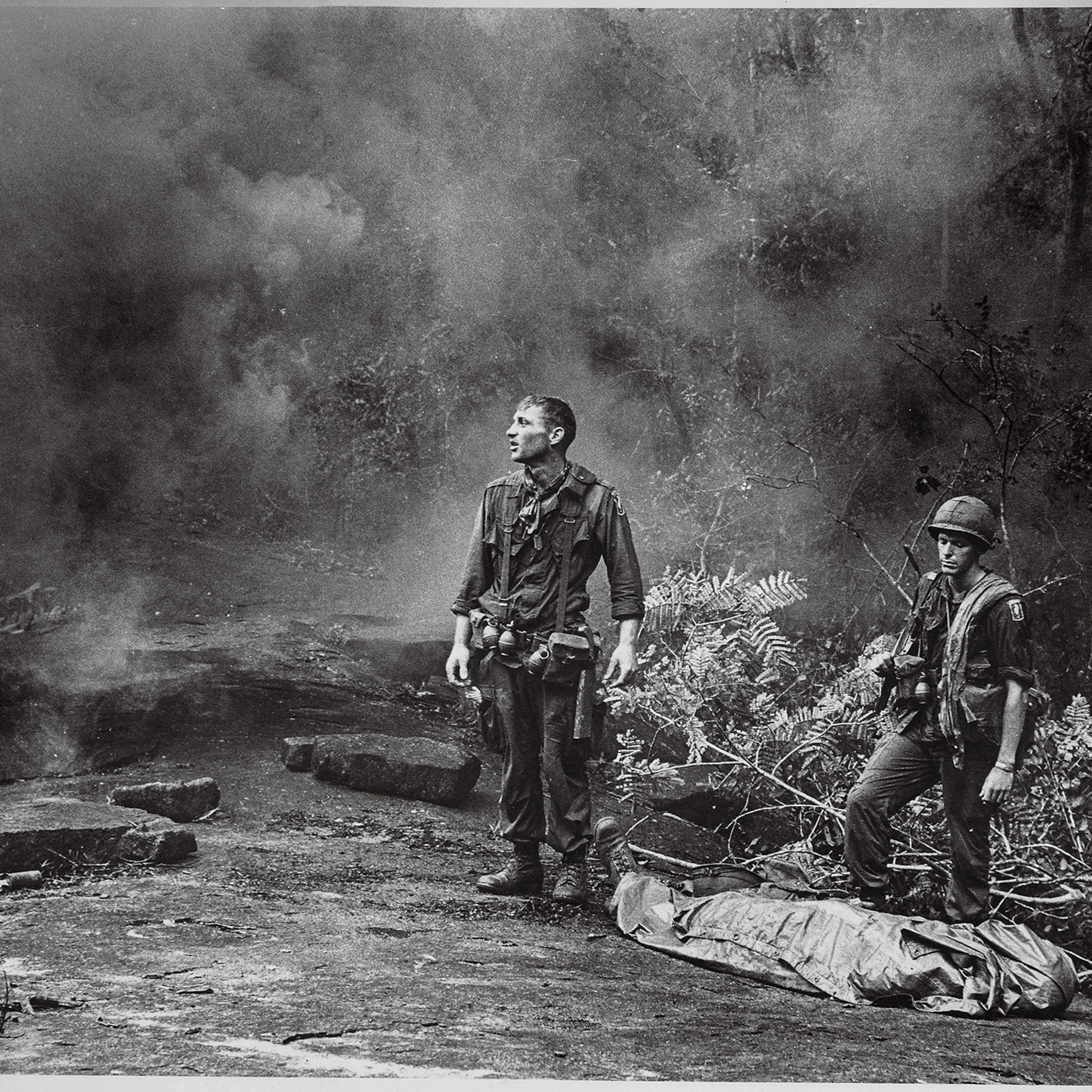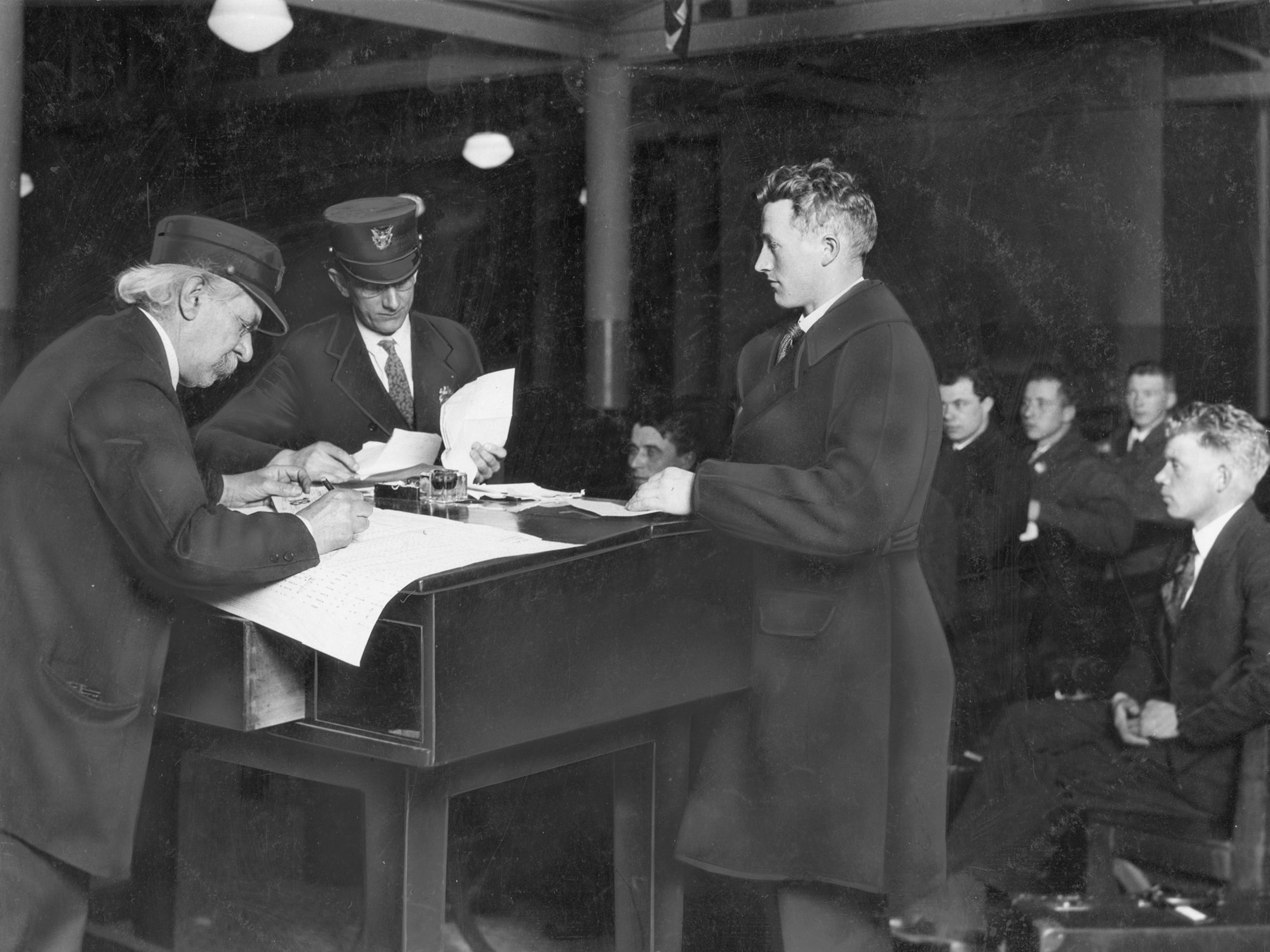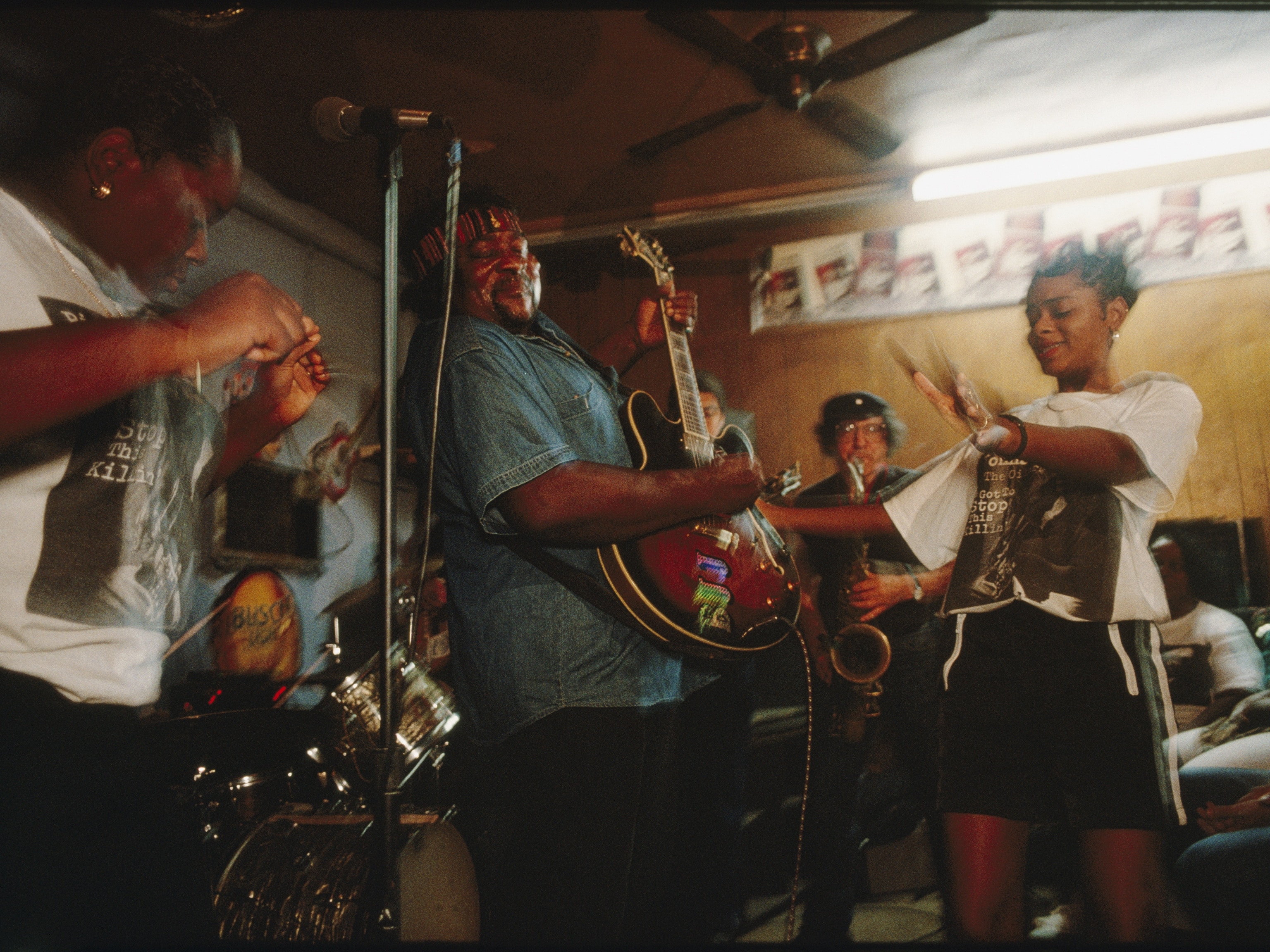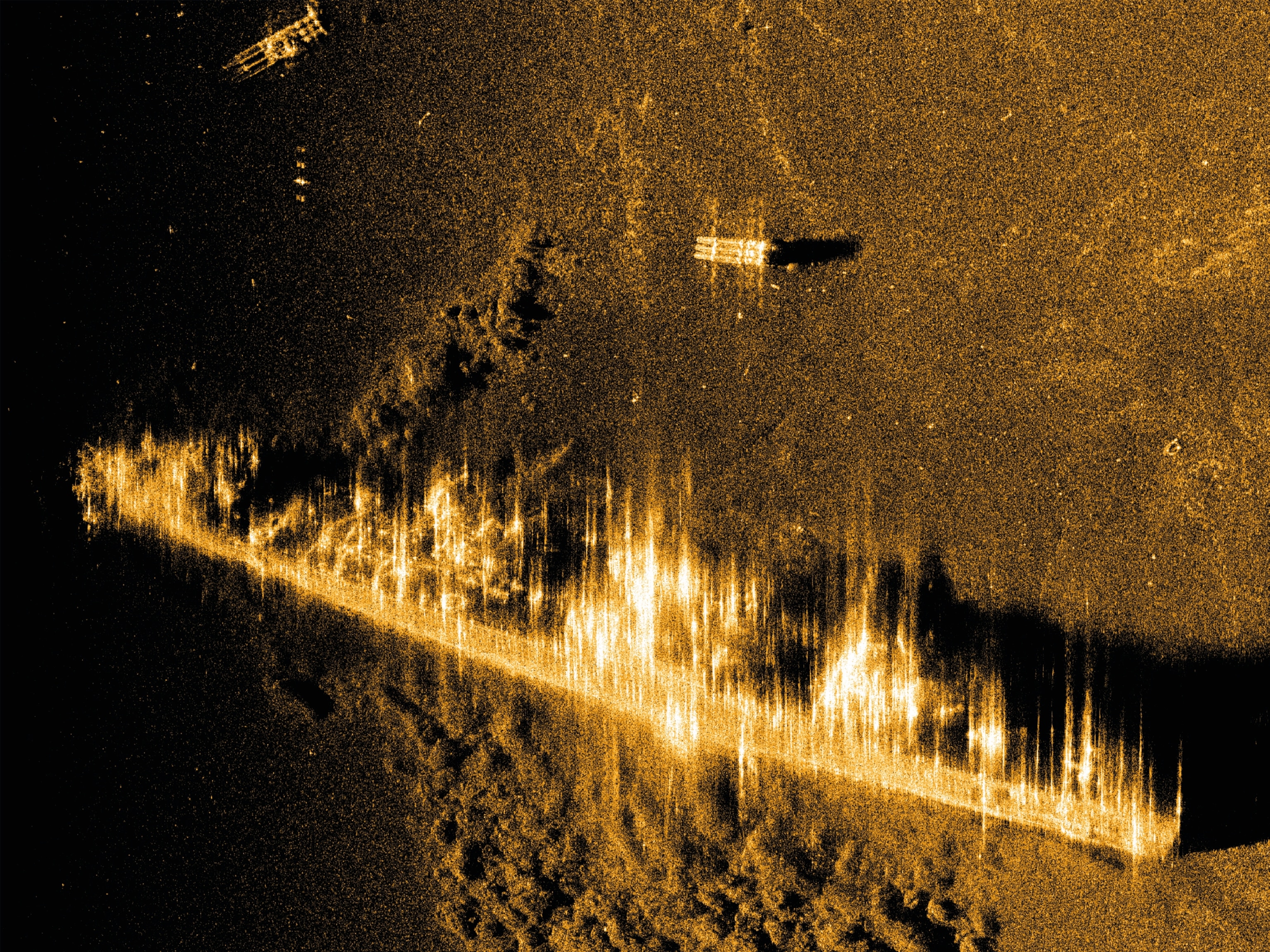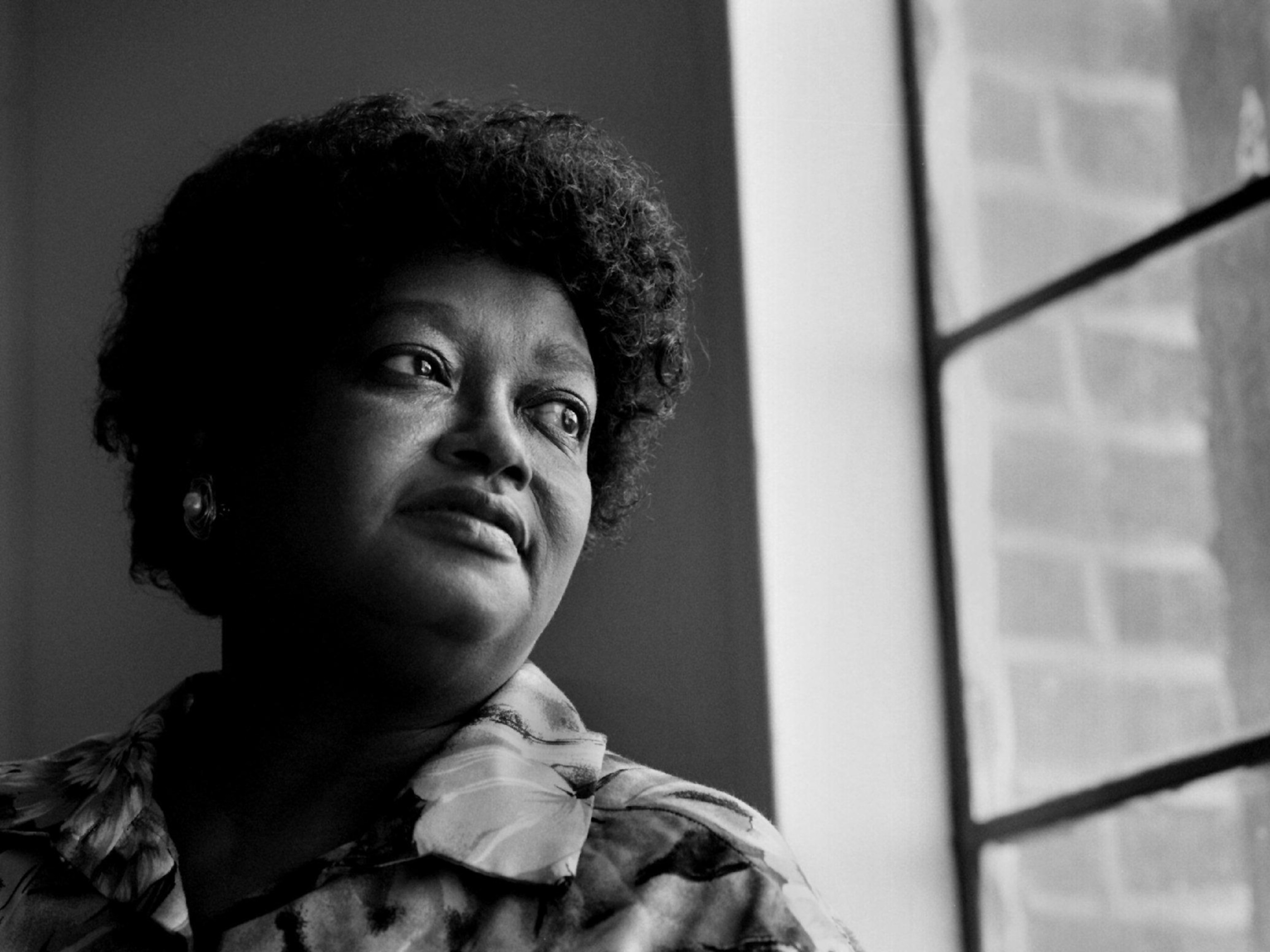The U.S. forced them into internment camps. Here’s how Japanese Americans started over.
The hardships didn’t end with their incarceration. Japanese Americans lost their homes and livelihoods during the war. Here’s how they fought for—and won—reparations for those losses.

When the Tomihiro family left Minidoka War Relocation Center in south-central Idaho in 1945, they didn’t head home to Portland, Oregon, where they’d lived for decades. “Home” didn’t exist anymore—they had lost everything during the internment of people of Japanese ancestry in World War II. Before the war, the family had owned a half-block of houses and stores and a hotel. Now, they had nothing.
Their new apartment in Chicago was “really miserable, dark and dank, and roach- and rodent-infested,” Chiye Tomihiro recalled during a public hearing in Chicago about the harsh toll of internment in 1981. “We did not even have a sink.” Her mother, who got work as a seamstress, washed the family’s dishes in a hand basin in the hall; her father, once a powerful businessman, was never able to find steady employment again. Chiye eventually became her family’s sole breadwinner, an excruciating reversal of roles that pained her proud family.
The Tomihiros were just one family among the tens of thousands who were detained for years by their own government. Beginning in 1942, the U.S. forced Japanese Americans into internment camps in far-flung parts of the country, depriving them of their freedom and livelihoods. After the war, they were forced to start over—and began to demand compensation for their suffering.

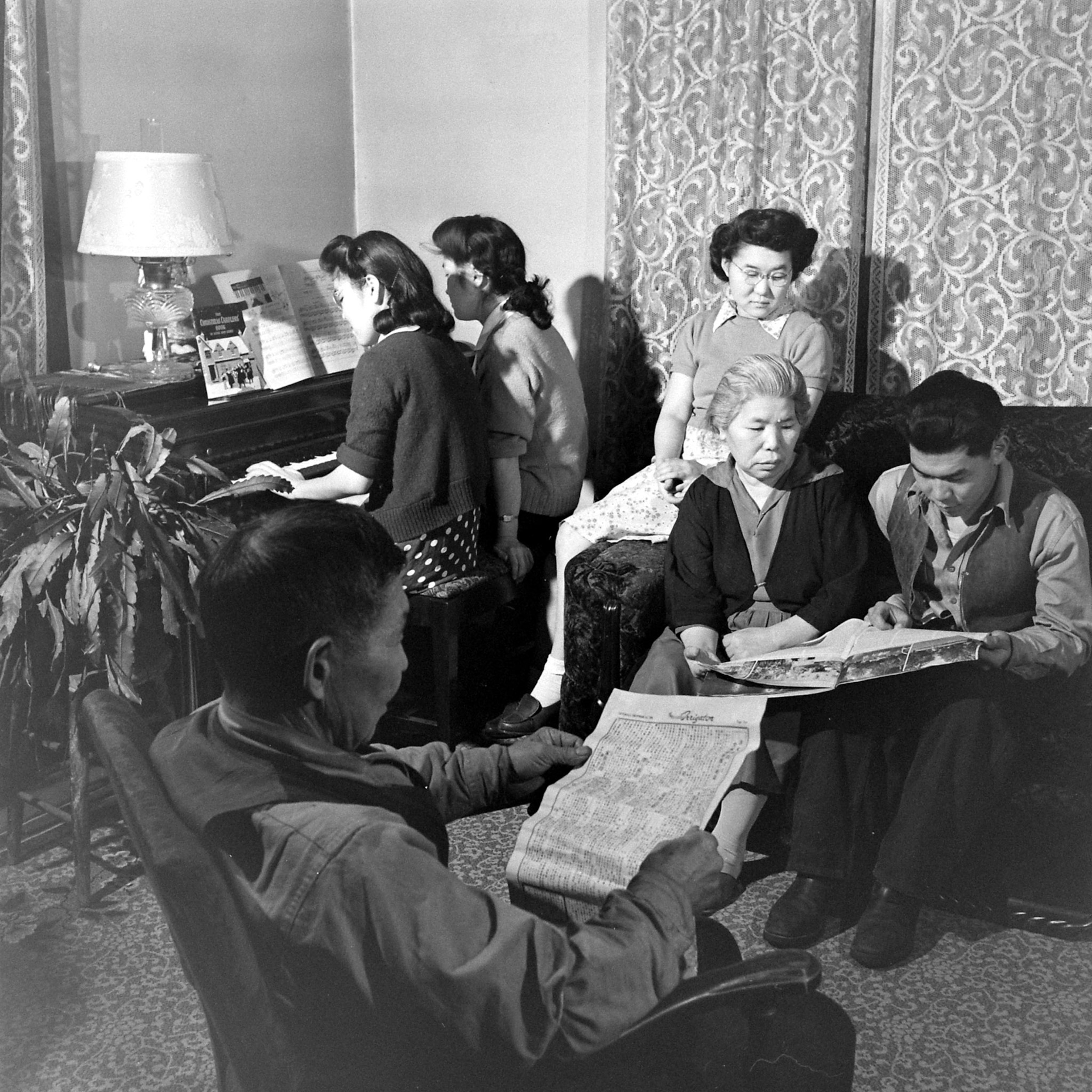
How the 'enemy aliens' label fueled anti-Japanese sentiment
After Japan attacked Pearl Harbor on December 7, 1941, U.S. President Franklin D. Roosevelt paved the way for internment with Executive Order 9066, which gave military leaders the authority to create wide-reaching military zones and exclude “any or all persons” from them. Fearing a land invasion by Japan, the government put the entire West Coast and Hawaii under military authority, paving the way for the “evacuation” of about 120,000 people of Japanese descent, 70,000 of them U.S. citizens, who were now dubbed “enemy aliens.” They could bring along only what they could carry, and lived in isolated, bare-bones internment camps monitored by military guards.
By 1943, it had become clear that a Japanese invasion was unlikely, and the War Department in Washington found it increasingly difficult to justify detaining thousands of people indefinitely, even as anti-Japanese sentiment raged throughout the country. The War Department began offering some detainees leave opportunities to pursue higher education or work in seasonal agricultural jobs. Then, officials dangled the possibility of indefinite leave to those willing to declare their loyalty to the United States. Almost 35,000 Japanese Americans left the concentration camps in 1944, but tens of thousands remained.
Finally, amid growing pressure and legal challenges to shut down the camps, Roosevelt suspended Executive Order 9066—after he won re-election in November 1944. In a cabinet meeting on December 17, the administration announced it would end exclusion as of January 1, 1945. The next day, the U.S. Supreme Court issued a unanimous opinion in the Ex Parte Mitsuye Endo case, ruling that the government could not detain loyal American citizens. Though it took nearly a year to close down all the camps, Japanese Americans were now free to return home.
We don’t want them, and since they know that, they shouldn’t want to come back. If they do, there will be trouble.
Leonard Goldsmith, Seattle janitor
Defining home after internment
In the years after internment, the word “home” had a very different meaning for the former detainees. Many didn’t have a home to return to at all—many had been forced to sell their property, belongings, and businesses at steep discounts in the rushed days before their incarceration; some lost them during the war. Others returned to find their homes had been vandalized, destroyed, or foreclosed upon.
Alien land laws that forbade Asian Americans from owning certain land and redlining, a practice that prevented minority groups from getting loans to buy homes in certain neighborhoods, made economic recovery difficult. Internees instead settled in cities that had been reshaped dramatically by the war, making housing and good jobs scarce. People found themselves living in trailers, cheap hostels, and even repurposed military barracks.
“When the Japanese arrived in the United States they were at the bottom of the economic ladder,” the Commission on Wartime Relocation and Internment of Civilians wrote in its 1983 report on Japanese internment. “The impact of evacuation is made more poignant by the fact that it cut short the life and strength of the immigrants, frequently destroying the fruit of years of effort.”
Economic hardship wasn’t the only peril the released internees faced. Stoked by decades of intolerance and Japan’s enemy status during the war, anti-Japanese sentiment was further fanned by the announcement internment would end. White citizens formed anti-Japanese clubs—and joined existing organizations like the Japanese Exclusion League—to lobby against Japanese Americans’ return to their communities.

“Somebody should be arrested for even thinking of bringing the J--- back,” Seattle janitor Leonard Goldsmith told the Seattle Daily Times, employing a common slur used to describe Japanese Americans. “We don’t want them, and since they know that, they shouldn’t want to come back. If they do, there will be trouble.”
Some returning detainees were met with threats. In Hood River, Oregon, white farmers falsely claimed Japanese Americans had engaged in a conspiracy to corner the orchard business before the war, and returning internees were met with boycotts, racial slurs, and physical attacks. Hood River’s American Legion post even removed the names of 16 Japanese American servicemen from its honor roll.
Many Japanese Americans who once held white-collar jobs or owned businesses could only get post-war jobs doing menial labor or domestic service—a blow not only to pride, but to a traditional patriarchal structure of most Japanese American families, which prized fathers as breadwinners and valued financial status and community leadership. For many, it was too painful to revisit what had been taken away during internment.
Recovery and redress
Though the Japanese American community inched toward economic recovery, “this appearance of normalcy was achieved by ‘forgetting’ the evacuation experience,” sociologist Tetsuden Kashima, who was incarcerated at the Topaz War Relocation Center in Utah as a child, wrote in 1980. As families struggled to regain footing, they prioritized assimilation over pride and maintained a code of silence about their experiences. A generation gap developed between the older Issei, or Japanese-born immigrants; the Nisei, or second generation, who grew up in the United States; and the Sansei, a third generation who were interned as small children or born “after camp.”

Only in the wake of the Civil Rights Movement in the 1960s did the tide turn as Japanese Americans began demanding answers about their families’ mass detention. Though the U.S. government had paid out about $38 million to Japanese Americans who claimed losses from the “evacuation” after the war starting in 1948, the payments represented only a fraction of the actual losses from internment. The successes of the Civil Rights Movement energized the Sansei, who began to pressure Congress to pay former internees and apologize for their incarceration.
In 1980, Congress created the Commission on Wartime Relocation and Internment of Civilians, a bipartisan commission that conducted intensive historical research and public hearings across the country with more than 750 witnesses. Three years later, the commission issued a landmark report calling out internment as “a grave injustice” and recommended internees be individually compensated.
After years of public controversy and Congressional foot dragging, the U.S. adopted the Civil Liberties Act of 1988, which granted $20,000 in financial redress and a presidential apology to every surviving U.S. citizen or legal resident who had been incarcerated. By then, though, many of the older generation had already died, making it a bitter victory for Japanese Americans.
The anti-Asian sentiment that enabled internment still lives on: Between March 2020 and February 2021, Stop AAPI Hate, a nonprofit organization that tracks incidents of discrimination and harassment against Asian Americans and Pacific Islanders in the United States, received almost 3,800 reports of hate incidents. Nearly 80 years after internment, Japanese Americans still must fend off threats to their civil rights, and even their lives.
Today, there are about 1.5 million people of Japanese ancestry in the United States, and the generations that came after internment watched their elders both survive and rebuild.
“The journey from silence to redress has shown that some forms of resilience evolve over decades,” psychologists Donna K. Nagata and Yuzuru J. Takeshita wrote in 1998. Japanese Americans are still affected by internment and its legacies—but resilience and strength are also part of their heritage.

